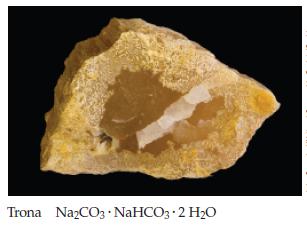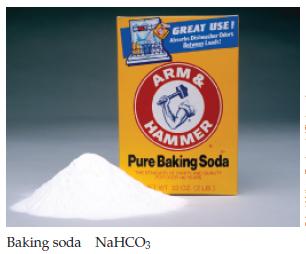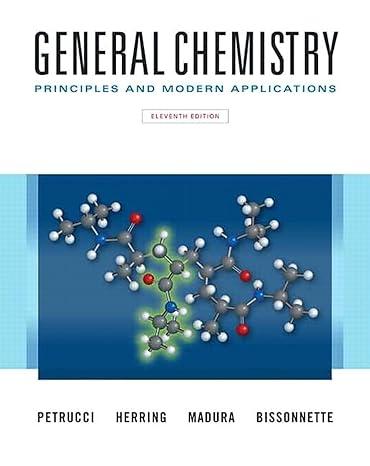Baking soda, NaHCO 3 , is made from soda ash, a common name for sodium carbonate. The
Question:
Baking soda, NaHCO3, is made from soda ash, a common name for sodium carbonate. The soda ash is obtained in two ways. It can be manufactured in a process in which carbon dioxide, ammonia, sodium chloride, and water are the starting materials. Alternatively, it is mined as a mineral called trona (top photo). Whether the soda ash is mined or manufactured, it is dissolved in water and carbon dioxide is bubbled through the solution. Sodium bicarbonate precipitates from the solution. As a chemical analyst you are presented with two samples of sodium bicarbonate—one from the manufacturing process and the other derived from trona. You are asked to determine which is purer and are told that the impurity is sodium carbonate. You decide to treat the samples with just sufficient hydrochloric acid to convert all the sodium carbonate and bicarbonate to sodium chloride, carbon dioxide, and water. You then precipitate silver chloride in the reaction of sodium chloride with silver nitrate. A6.93 g sample of baking soda derived from trona gave 11.89 g of silver chloride. A6.78 g sample from manufactured sodium carbonate gave 11.77 g of silver chloride. Which sample is purer, that is, which has the greater mass percent NaHCO3?


Step by Step Answer:

General Chemistry Principles And Modern Applications
ISBN: 9780132931281
11th Edition
Authors: Ralph Petrucci, Jeffry Madura, F. Herring, Carey Bissonnette





